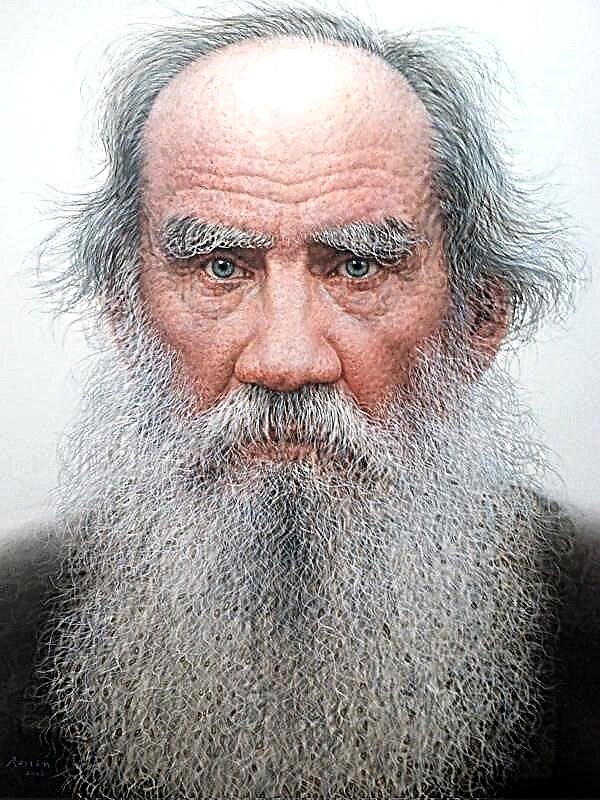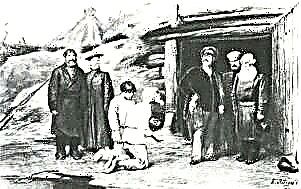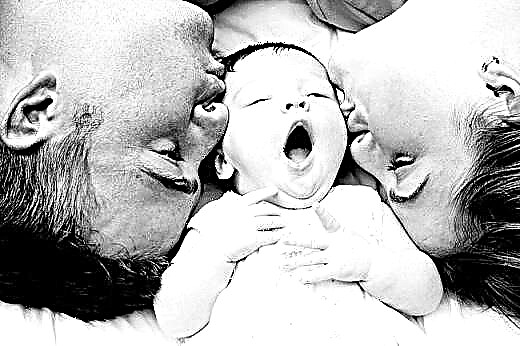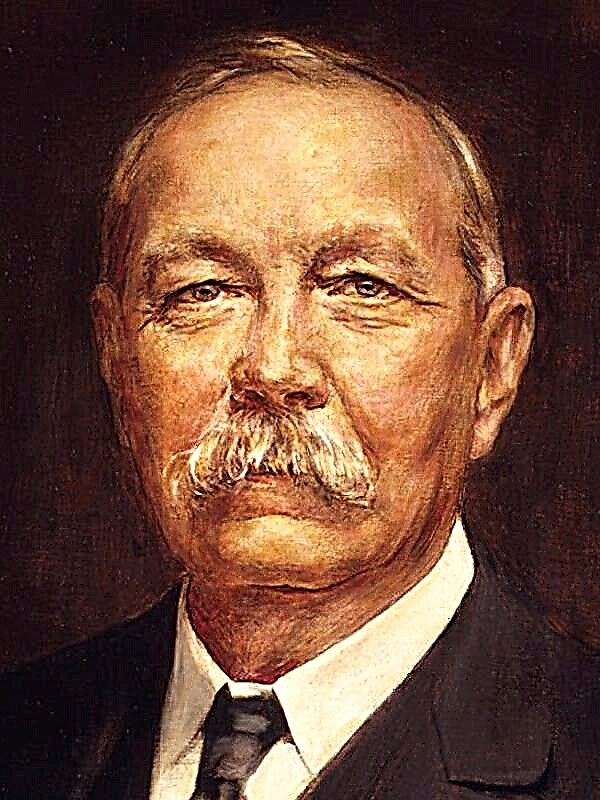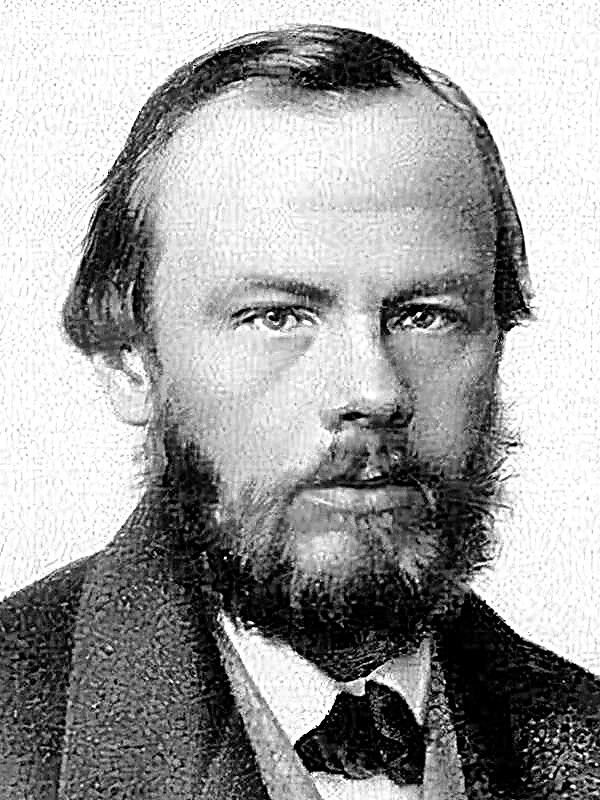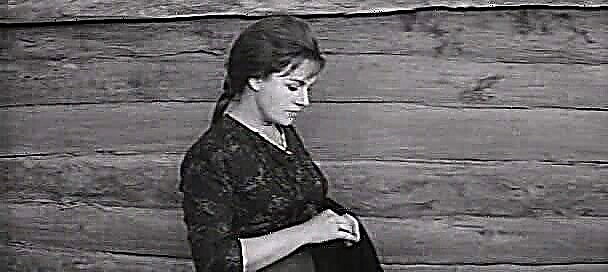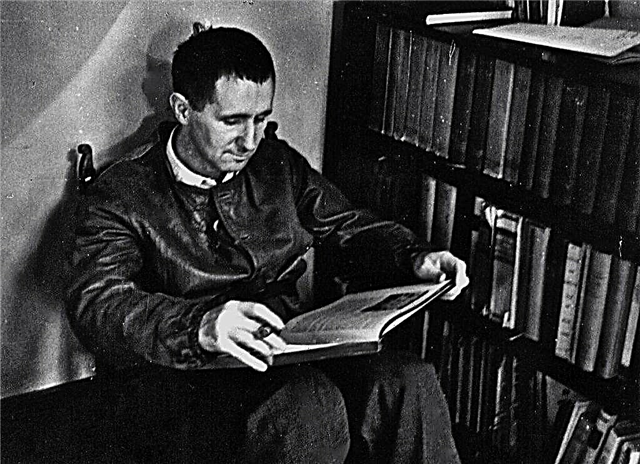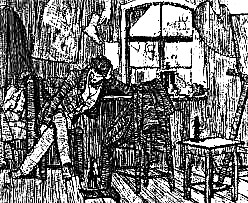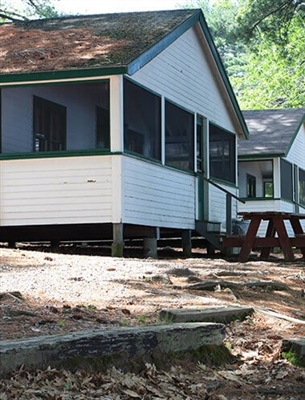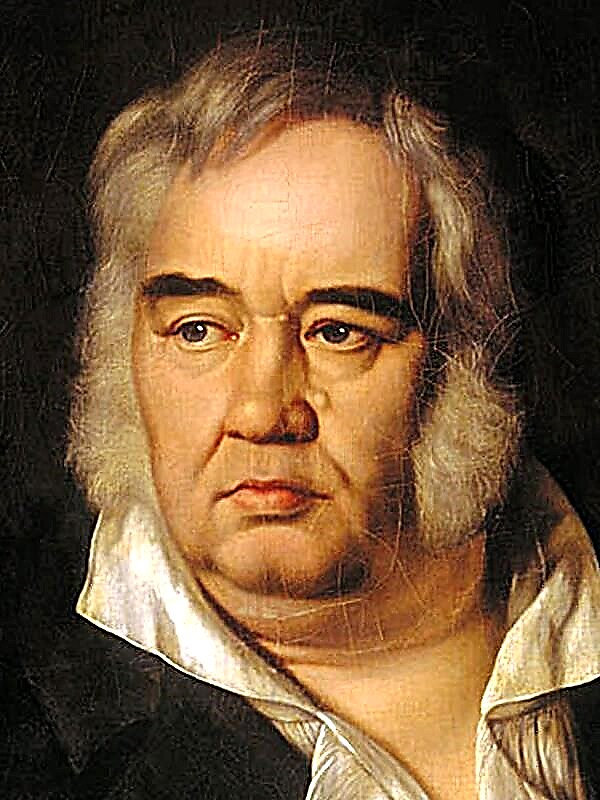The action of the poem takes place in Finland in about 1807 - 1808.
In the spring, at sunset, in front of the hut, two people were talking: a young Finnish woman, “pretty Eda” with “golden hair” and “pale blue eyes” and a Russian, “young hussar”, a guest in her house. They are surrounded by majestic paintings: mountains, waterfalls, a pine forest: "Are not the worlds long gone / <...> ruins of gloomy?"
The hussar assures the girl that she looks like his beloved sister, left in her homeland, and asks Eda for sisterly love. Eda listens to him trustingly; when the hussar presses her hand to his heart, she tries to get angry, but she cannot: "The clear joy was shining / In her infant eyes." Eda answers the hussar that he sees his love and has long answered him with love: "Is it not always / Am I in a hurry to please you?" - recalls that she gave him a ring, that every morning brings flowers, which shares his joy and sadness. Ede was said that men are treacherous: "You may be destroying me." Here the hussar, in disbelieving Ed, kisses her for the first time with learned art: "How he controlled himself!"
This kiss robs Ed of ordinary carelessness. Turning to his heroine, the poet says: “On your pink stones / Spring playfully brightened, / And bright green moss on them <...> It’s scary for it / Your magic spring ...”
The former simple and friendly relations with the hussar, when she played with him and enjoyed cheap gifts, are no longer possible: the girl hardly speaks to him in public, but she does not take her eyes off him, and in private “she’s full of disastrous passion, / She herself has her mouth / He turns to his kisses, ”and then suffers remorse and cries.
Eda’s stern father, fearing that the hussar will seduce and abandon her, warns: “The hussar is not my daughter.”
The next evening, Eda reads the Bible in her room, recalling her “habitual purity” with “habitual longing”. A hussar “sly” with a cloudy face appears, sits down, arms crossed over his chest, and says that he is ready to part with Eda, obeying his duty and not wanting to incite his father's anger on his daughter. Separation, of course, will kill him. Finally, the hussar asks for one night date in her room.
Eda vaguely feels the insincerity of a seducer and, clutching the Bible to her chest, exclaims first: “Leave me, evil spirit!” - however, soon yields: “I own it myself! / And what I know!”
In the evening, the girl hesitates and still locks the door. Curling her hair and undressing, she thinks of falling asleep, but she cannot reproach herself for her "waywardness" and finally unlocks the door; a hussar is already waiting outside the door.
"Alas! got that night / He desired victory ... ”In the morning, the heroine, struck by the accomplishment, cries and does not listen to the oaths of the hussar.
Soon, however, she forgives the seducer and does not part with him: “she follows him like a manual doe / He walks everywhere.” During peaceful meetings, the heroine is haunted by forebodings: she realizes that the hussar will soon abandon her. Eda tries not to annoy the hussar with her longing, but her "longing love" and tenderness already weighs on him. To the joy of the hussar, the Russo-Swedish war begins, and the regiment sets out on a campaign.
Parting with Eda, the hussar is ashamed to look at her; she is silent, not crying, "dead face, dead soul."
Finland is winter. Ed wilted from grief awaits death: “When, when do you sweep away, blizzard, / From the face of the earth is my light trail?” The poem ends with a description of the abandoned grave of Eda.

